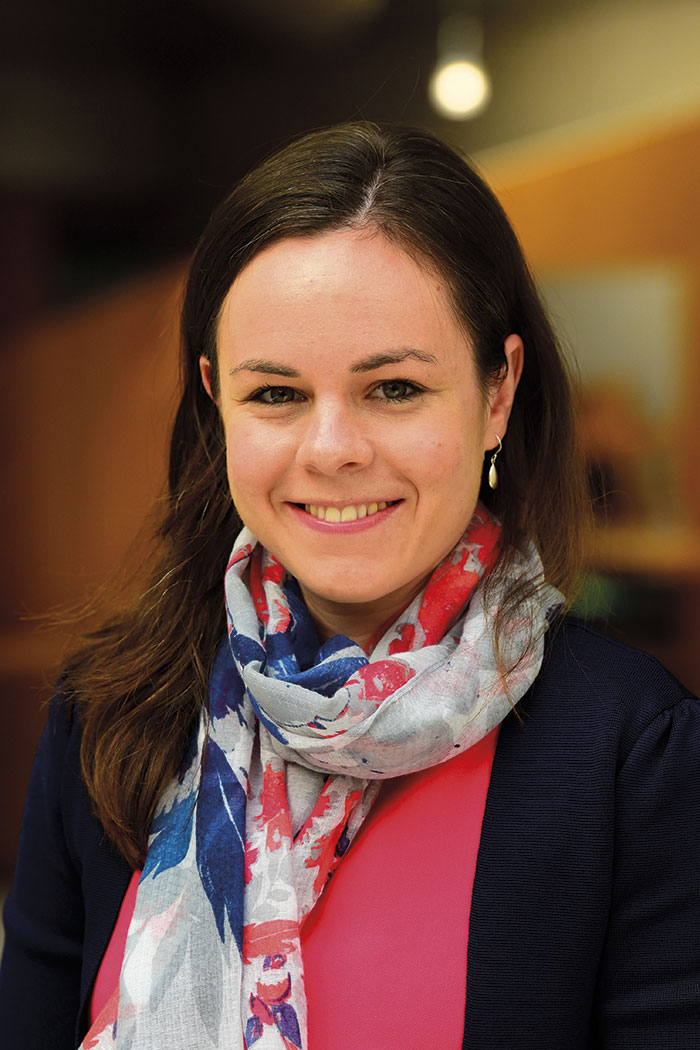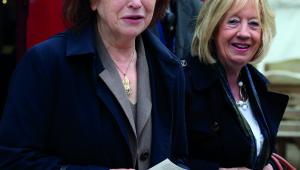
Kate Forbes has a high-profile and potentially incendiary portfolio. Appointed minister for public finance and digital economy in last summer’s Scottish Government reshuffle, she takes on the role at a torrid time for devolution and the Scottish economy.
Scotland has been pursuing an increasingly distinctive path on taxation from the rest of the UK, first introducing a five-band income tax system, under which higher earners pay more, and then freezing the higher rate threshold – which was raised across the rest of the country – for a second year.
“We’ve been quite clear that a time of uncertainty is not the time to be giving tax cuts to the highest earners – it’s a time for ensuring there is money to invest in public services,” Forbes tells PF.
This year will see the next major step towards fiscal devolution: the assignation of VAT revenues to the Scottish Parliament. However, experts have warned that the difficulty in producing robust estimates of VAT revenues north of the border could pose a significant risk to the Scottish budget.
Forbes accepts that there may be a case for delaying the move until both the Scottish and UK governments have complete confidence in the model under which the assignation will take place.
“We could seek a transitional period to give both governments time to assess the robustness of the model – but that does not call into question our commitment to implement the transfer,” she says.
“Considering that VAT receipts are going to account for such a significant proportion of the Scottish budget, we do need to have confidence in the approach before moving to implement VAT assignment.”
On local taxation, too, Scotland has taken an idiosyncratic approach. Under a budget deal struck earlier this year with the Scottish Greens, it committed to handing councils control over two discretionary taxes – a levy on overnight visitors and a tax on workplace parking.
Forbes describes the new powers as “the most significant empowerment of local authorities in a long time”.
“It is important that local authorities can respond to their local circumstances, and the new tax-raising powers will allow them to do that,” she says.
On the future of local taxation as a whole, she is more circumspect. The budget deal also included cross-party talks on replacing council tax, but Forbes says the outcome will depend on willingness of all the parties to work towards a genuine consensus in an intractably divisive area.
“We are willing to talk to and work with the other parties… but it really depends on how seriously the other parties take those discussions and how willing they are to compromise,” she says.
Bold plans for health and social care integration, in the form of 31 joint boards with a combined budget of almost £9bn, have also proved problematic, with progress hindered by the unwillingness of public bodies to relinquish control of budgets.
“When it comes to allocating financial resources, it’s far harder to move from responding to immediate challenges to investing long term for the future, but integration is doing precisely that,” she says.
The question of the currency that would be used in an independent Scotland will take centre stage at this month’s SNP spring conference.
Forbes, a member of the SNP’s Sustainable Growth Commission, which recommended continuation of sterling until six key economic tests were met, says members will discuss the circumstances under which a new currency would be introduced.
“Our position is clear that the currency you use the day before independence will be the same currency you use the day after independence; that is the Scottish pound.”



















